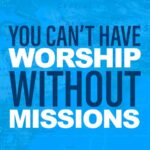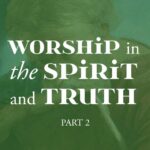The name of my blog, A Thing Worth Doing, is borrowed from the quote, “If a thing is worth doing, it is worth doing badly.” While you chew on that, I’ll give you some background. The first time I ever heard this statement was from Robert Picirilli. He mentioned it to me after I presented a paper for a symposium, but he couldn’t remember who originally said it. He thought he had originally heard it from Leroy Forlines. I asked Forlines, and he said he thought he heard it from Picirilli.
Turns out, it was G. K. Chesterton who said it . . . twice.[1]
I don’t believe Chesterton is providing an excuse for those who are not seeking excellence. (As a teacher, I have often encountered students who are seeking an excuse for doing their school work poorly.) Rather, Chesterton is combating our tendency to become discouraged when our environment, resources, and abilities are lacking. He’s making sense of the times when we are unable to achieve the results that we’ve hoped for. He is not giving an excuse for poor effort; he’s making sense of poor results.
Is Dealing with “Poor Results” Really a Big Deal?
I think it is.
As the culture of the Western world has grown increasingly pragmatic, we Christians are now quick to throw out any effort that does not yield immediate results. We are slow to focus on or invest in something that does not guarantee a certain result. For example, someone recently told me that I shouldn’t waste my money or our child’s time with piano lessons: “You know there are STEM classes available for kids. That’s where all the careers are headed. Musicians usually end up starving. Haha.”
I was not amused.
Science, technology, engineering, and mathematics are by all means worthy pursuits. Even though I’m a musician, I would be delighted if my children expressed interest in these fields that so obviously display the intricacies of the glory and majesty of the Creator. It is also nice to make a decent living while you’re doing something you love. But it is disheartening that this person’s motivation for seeking these noble vocations was entirely pragmatic.
We must brace ourselves for poor results as we seek the truth, beauty, and goodness in this broken world. There are many noble pursuits in life; these pursuits are worth doing regardless of the results. (We should also investigate who is establishing the expected results in the first place.) Don’t wait around to be an expert first before doing the right thing, and don’t wait until you are guaranteed a certain result.
For example, how foolish would it be for a bride to wait until she is the perfect wife before marrying? Neither should this couple wait until they are perfect parents to have children. If a thing is worth doing, it is noble to pursue this thing in the face of unideal circumstances at the risk of doing it poorly.
Ministry: A Thing Worth Doing
Should I even bother witnessing if I don’t have all the answers? What if I can’t satisfy a seeker’s questions? Witnessing is commanded by Christ and should be done by every believer even at the risk of being outsmarted by some antagonistic atheist. Yes, go into all the world! God didn’t call you to have all the answers, he called you to be a witness.
I believe God has called me to be a pastor, but I don’t have a Bible degree? Should I wait to preach my first sermon? No. You should preach as much as you can. Your first sermon will probably be a train wreck. That’s okay. Seek advice from other seasoned pastors. Get input from those in the pew who hear your sermons. Preach everywhere you can—the nursing home, the youth group, the rescue mission—while working on a degree in theology and ministry. For more on this topic, see my article about God’s call to ministry.
Should I even give money to the church if I don’t make a lot of money? What’s my $20 each month going to matter? You should give cheerfully and regularly. There’s a story in Scripture just for you.
Culture-Making: A Thing Worth Doing
I’ve never been a husband. Should I wait to become a professional husband before marrying? No. If you are both ready and the young lady is a follower of Jesus, you should get married and then seek counsel from other Godly couples about how to be the best husband.
I’ve never had a chance to write. Should I wait and start a blog after I have had more experience? No. Start your blog. Put yourself out there. Don’t worry about the snide remarks from others. You’re a writer, so start writing, even if it is bad. But always try to make your writing better.
I’ve never started a garden. Should I even mess with this? Yes. Start your garden. It’s time-consuming, and vegetables at Walmart are much cheaper. Your zucchini will likely fail from blossom-end rot. That’s okay. Start your garden and get better at it. There’s always next season.f
Conclusion
While navigating your ever-changing and unideal circumstances, seek noble things. In the midst of your failures, keep a vision of the ideal. It doesn’t mean that your ideals are faulty when the end is not the result for which you hoped. Continue seeking that which is truthful, beautiful, and good. In the midst of depravity, falsehood, and brokenness, you are playing a small part in God’s plan of redemption. You are redeeming fallen creatures in this fallen world so that they might glorify their Creator and begin to redeem others also.
*****
I’ll probably edit this post a lot. So come back for later drafts. Perhaps it’s written badly? . . . but only for a season. Maybe.
[1] Gilbert K. Chesterton, What’s Wrong with the World (New York: Dodd, Mead, and Company, 1910). https://www.gutenberg.org/files/1717/1717-h/1717-h.htm
Gilbert K. Chesterton, The Paradoxes of Mr. Pond (London: Cassell & Company, 1937). http://gutenberg.net.au/ebooks05/0500421h.html







